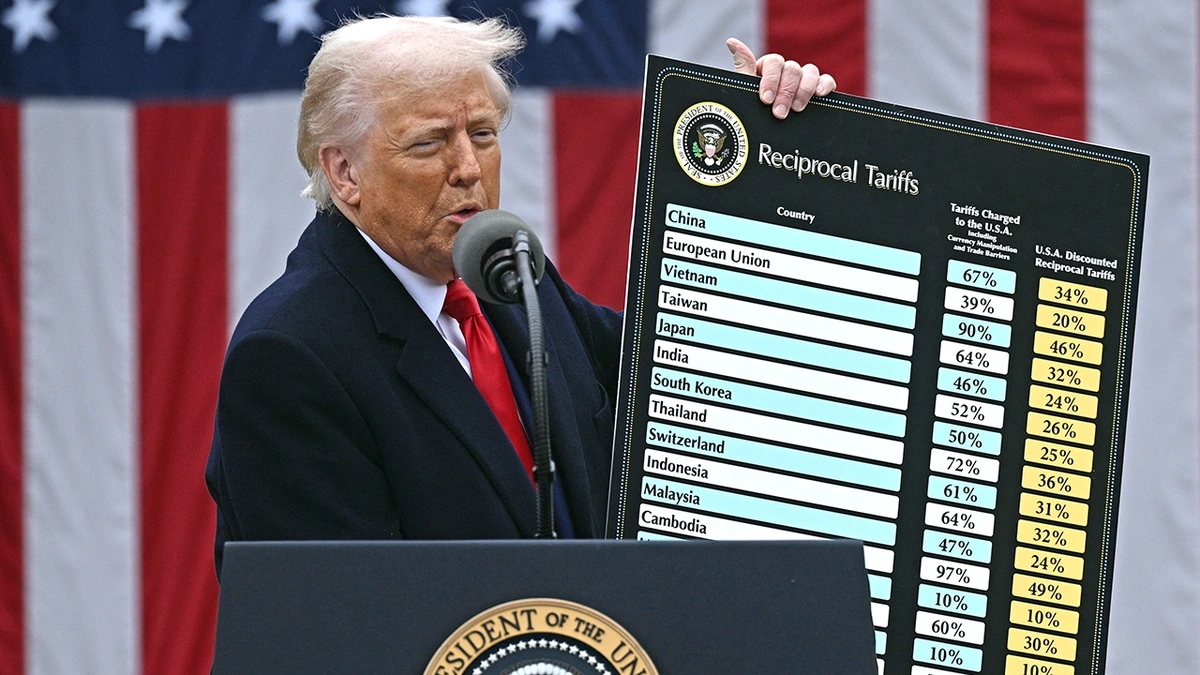Most Trump-Era Tariffs Deemed Illegal by US Appeals Court 📰
What the Ruling Says 📜
The U.S. Court of Appeals for the Federal Circuit, in a 7-4 decision, ruled that the International Emergency Economic Powers Act (IEEPA) does not grant the president authority to impose broad import tariffs, a power reserved for Congress under the Constitution. This decision declares most of Trump’s reciprocal and emergency-based tariffs illegal. However, the court issued a stay until October 14, 2025, to maintain current tariff rates while the administration considers a Supreme Court appeal, preventing immediate market disruptions. ⚖️
Which Tariffs Are Affected? 🛃
The ruling targets Trump’s “reciprocal” worldwide tariff program and additional IEEPA-based duties on imports from China, Mexico, and Canada. Tariffs on steel and aluminum, enacted under separate statutes, remain unaffected. The decision stems from consolidated lawsuits by small businesses and states, arguing that the president overstepped statutory authority by invoking national emergencies to impose blanket tariffs. 🌍
Immediate Market and Policy Impact 📊
With the ruling stayed until mid-October, current tariff rates remain in place, preserving existing supply chains and pricing structures for now. Importers and exporters should prepare for potential changes if the stay expires without Supreme Court intervention, which could lead to rapid repricing, contract renegotiations, and shifts in sourcing strategies. 📈
Key Legal Milestones in 2025
| Date | Court Action | Practical Effect | Notes |
|---|---|---|---|
| May 15, 2025 | Court of International Trade rules tariffs illegal | Implementation stayed during appeal | Found IEEPA does not authorize blanket tariffs |
| August 29, 2025 | Federal Circuit declares most tariffs illegal (7-4) | Stay until Oct 14; tariffs remain for now | Confirms IEEPA lacks tariff authority; invites Supreme Court review |
| October 14, 2025 | Stay expiration date | Potential removal unless Supreme Court intervenes | Timing aligns with possible emergency applications to SCOTUS |
Political and Legal Trajectory 🗳️
The administration plans to seek Supreme Court review, with the stay’s timing aligning with the Court’s fall conference schedule, potentially allowing for fast-tracked consideration. Former President Trump has publicly emphasized an anticipated reversal, warning of economic harm if tariffs are removed, highlighting the high political stakes tied to his trade policy framework. 🏛️
Case Study: VOS Selections and Small Importer Exposure 🍷
VOS Selections, a U.S. wine and spirits importer, joined litigation arguing that IEEPA cannot justify blanket tariffs. The company highlighted how elevated duties burden low-margin consumer imports, driving up retail prices. If the ruling takes effect, firms like VOS could see lower import costs and restored margins. However, a Supreme Court stay or reversal would prolong cost uncertainty and contract volatility for small importers. 📦
How This Reshapes Global Trade 🌐
If upheld, the ruling reasserts Congress’s authority over tariff policy, limiting the president’s use of emergency powers for trade management or unrelated issues like drug trafficking. Trading partners may adjust their retaliation strategies and begin contingency talks, preparing for potential changes depending on the Supreme Court’s decision. 🤝
What Importers and Exporters Should Do Now 🛠️
Trade teams should plan for both scenarios: a Supreme Court stay that extends current tariffs or a lapse that removes affected duties, triggering rapid repricing. Reviewing contract clauses, surcharges, and supplier allocations now will ensure flexibility around the October 14 deadline and any interim Supreme Court orders. 📝
Frequently Asked Questions ❓
What does the US appeals court ruling mean for Trump tariffs right now?
The court found most Trump-era tariffs illegal under IEEPA but left them in place until October 14, 2025, to allow a Supreme Court appeal, so current rates remain unchanged. 📅
Which measures are covered by the federal court’s tariffs decision?
The ruling covers the reciprocal worldwide tariffs and certain IEEPA-based duties on China, Mexico, and Canada, not separate steel and aluminum tariffs under other laws. 🌎
How could the global tariffs ruling affect prices and supply chains?
If the stay lapses and tariffs are removed, import costs could drop, and contracts may be repriced quickly. If the Supreme Court extends the stay, current costs and routing will persist. 💰
What is the legal basis for declaring Trump tariffs illegal?
The appeals court held that IEEPA’s grant to “regulate” imports does not authorize imposing tariffs, a power reserved for Congress, making the duties contrary to law. 📘
Will the US appeals court ruling be the final word on Trump trade policy?
Likely not; the administration is expected to seek Supreme Court review, and the stay enables expedited consideration this fall. 🏛️
🌐 Explore More on Global Market Today
Dive deeper into the latest updates, insights, and expert analysis across our most popular categories.
Stay informed on business, economy, AI, and more – all in one place.
📈 Market
💼 Business
🏛️ Politics
🤖 Artificial Intelligence
🔧 Technology
₿ Cryptocurrency
🌍 Economy
💰 Personal Finance
⚡ Fintech Tools
Hindi Version
